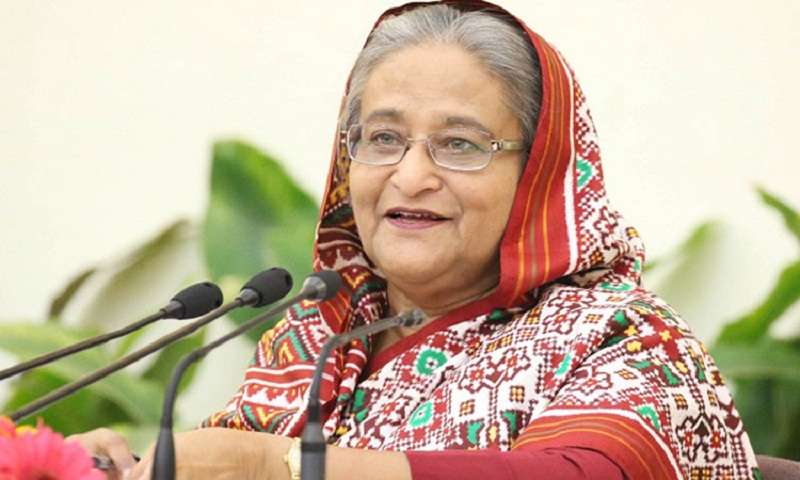

Bangladesh PM Sheikh Hasina
<p>
As the United Nations observed the International Genocide Day on December 9, Bangladesh Prime Minister Sheikh Hasina underlined the need for the global community to come together to ensure justice to genocide victims while putting in place measures that would prevent recurrence of such ghastly crimes in the future. Hasina said that Bangladesh was among the few countries to have experienced one of the worst forms of genocide in 1971, which killed about three million innocent people.</p>
<p>
On this day, let us reaffirm our commitment to &lsquo;never again&rsquo; to genocide for the sake of humanity and global peace.&rdquo; Dhaka Tribune quoted Hasina as saying. Hasina has maintained that Bangladesh can neither forget nor forgive the 1971 atrocities committed by Pakistan against the people of then East Pakistan, now Bangladesh.</p>
<p>
&ldquo;The pain and trauma inflicted on us in 1971 motivate us to seek an end to genocide anywhere and demand justice for the victims of this heinous crime,&rdquo; Hasina had told Pakistan High Commissioner to Dhaka Imran Ahmed Siddiqui a week ago.</p>
<p>
In 2017, Hasina had raised the issue of genocide even at the United Nations.&nbsp;In March 2017, the&nbsp;Bangladesh&nbsp;Parliament passed a resolution to observe March 25 as the Genocide Day.</p>
<p>
In 1971, the Pakistani Army had launched a &quot;heinous&quot; military operation on the then East Pakistan, now Bangladesh, which led to a &ldquo;genocide,&rdquo; killing of three million innocent people.</p>
<p>
According to Banglapedia, the national encyclopaedia of&nbsp;Bangladesh, &ldquo;no definite survey has yet been made to ascertain the exact number of people killed by the Pakistan army. Immediately after the War of Liberation, it was estimated to be as high as three million. The genocide committed by the Pakistan army is one of the worst holocausts in world history.&rdquo;</p>
<p>
The ghastly episode started at the midnight of 25 March 1971 when the Pakistan army cordoned Peelkhana, the headquarters of the east pakistan rifles (EPR), Rajarbagh police barracks, and the Ansar headquarters at Khilgaon.</p>
<p>
After the Pakistani forces surrounded Dhaka city with tanks and other military vehicles, &ldquo;truck loads of army men spread out through the city streets for stamping out all civil resistance,&rdquo; Banglapedia has documented. &ldquo;At midnight, the Dhaka University halls of residence and the staff quarters were attacked with tanks and armoured vehicles. A number of teachers, students and officials of the University were killed. A number of buildings including some newspaper offices in Dhaka were battered with mortar shells. Many people were burnt alive in the houses set on fire.</p>
<p>
Various parts of old Dhaka, including Hindu majority Mahallas such as Shankhari Patti and Tantibazar came under mortar shells,&rdquo; Banglapedia which has been prepared after intense research by over 1400 scholars, said.</p>
Google CEO Sundar Pichai said on Tuesday that the company has started to roll out…
President Luiz Inacio Lula da Silva welcomed Indian companies to manufacture drugs and pharmaceuticals in…
Noting ample opportunities for diversifying and expanding bilateral trade, Prime Minister Narendra Modi and Brazilian…
Prime Minister Narendra Modi was accorded the highest civilian honour of Brazil by Brazilian President…
Union Minister Hardeep Puri on Tuesday highlighted Central Government's series of sweeping policy reforms under…
The World Food Programme (WFP) has once again raised alarm over the worsening humanitarian crisis…